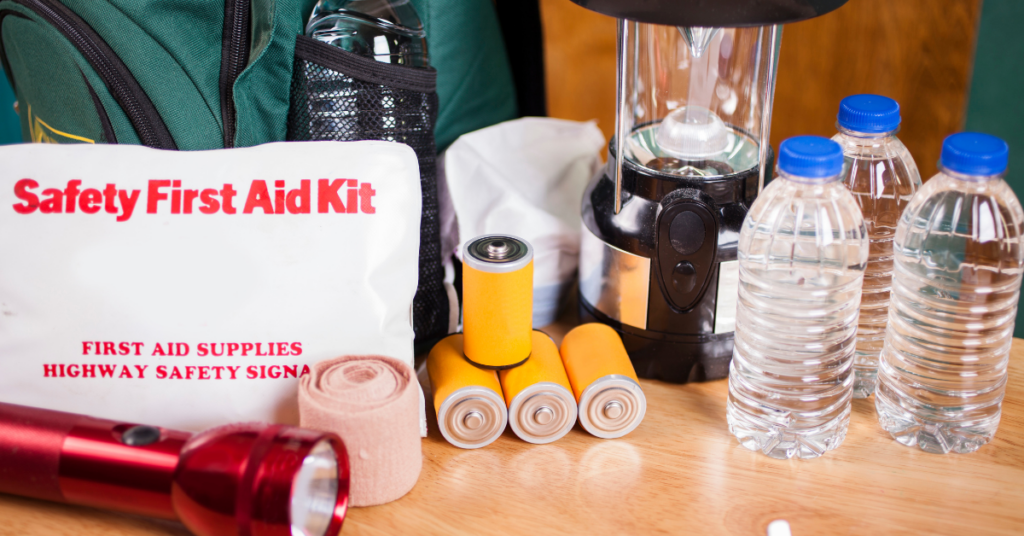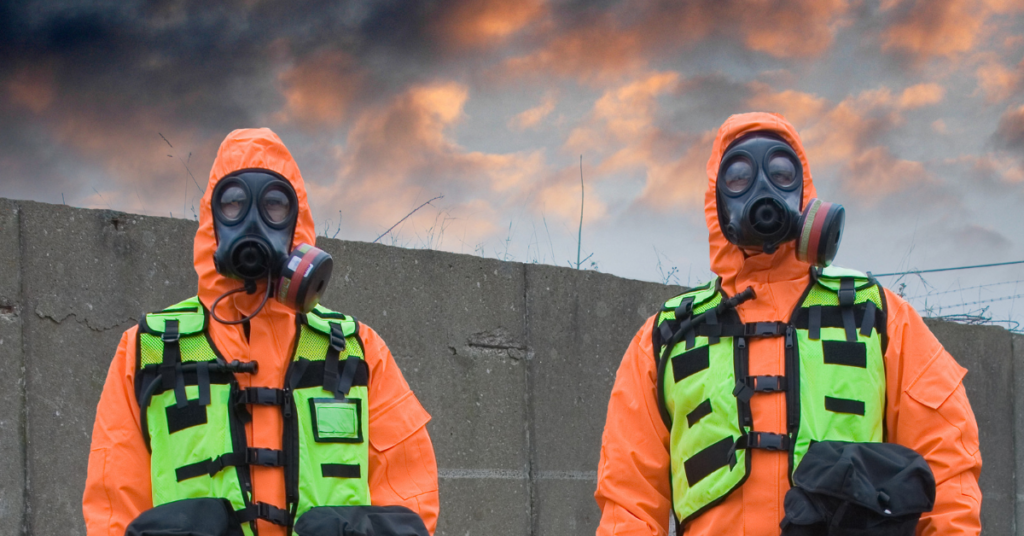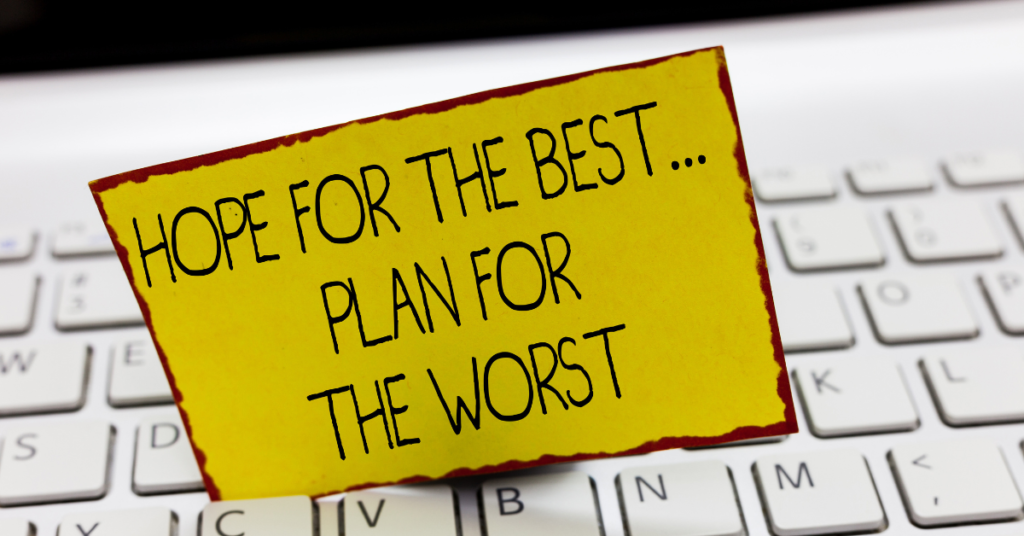What comes to mind when you hear the term “prepping”? Perhaps imagery of folks stockpiling toilet paper and canned food, anxiously awaiting an impending apocalypse? Let’s set the record straight right off the bat. Prepping transcends mere hoarding. It’s a lifestyle designed around preparedness for a myriad of emergencies, not just doomsday scenarios.
What is Prepping? – Preppers Prepare
What is prepping? Prepping is, at its core, the act of readying yourself and your household to withstand and bounce back from unforeseen events that could disrupt everyday life. These disruptions span short-lived incidents like power outages and severe storms to long-term economic downturns or natural disasters. It involves possessing the resources, money, knowledge, and skills to meet your basic needs when external help might be scarce.
Interestingly, prepping and survivalism aren’t synonymous but share common elements.
Survivalism leans more towards enduring and adapting to a prolonged off-grid existence in the wild.
In contrast, prepping is about readiness to tackle a broad range of scenarios, including staying safe and comfortable at home during a blackout or weathering (hurricane, winter storm, fire outbreak, earthquake), a financial crunch, or maybe again: a pandemic.
Meet the Prepper
A prepper is an individual who incorporates preparedness into their daily routine. They systematically plan, organize, and prepare for various situations that could disrupt regular life, ensuring they possess the requisite supplies, skills, and knowledge to navigate these scenarios.
Preppers come from all walks of life. Urban preppers are readying themselves for potential crises in city settings, rural preppers are leveraging their expansive outdoor space, and homesteaders are striving for a sustainable lifestyle that minimizes dependency on external resources.
The Broad Spectrum and Varied Levels of Prepping
This section is about the different levels about preparation. There are different scenarios which needs different preparations to survive. Some can take more time to master them successfully and some mastered with “only” short term prepping.

Guiding Principles and Skills for Prepping
Prepping isn’t a haphazard, buy-everything-in-sight frenzy. It’s a systematic process steered by planning, prioritizing, and practicing principles.
A core concept in prepping is the Survival Rule of Three, which asserts: “Three minutes without air, three hours without shelter in harsh conditions, three days without water, and three weeks without food.”
This rule aids most preppers in prioritizing their needs and making informed decisions.
Key Prepping Needs
Every prepper needs to address several key areas, specifically:
Water
Ensuring a reliable supply of clean water.
- The EPA‘s (Environmental Protection Agency) guidelines on water treatment and storage are critical for preppers focusing on ensuring a clean and reliable water supply.
Food
Building up a stockpile of non-perishable food items.
- The best Canned Food for your storage.
- Learn How to Store Food Long-Term from us!
- The USDA (U.S. Department of Agriculture) has a bunch of informations about Food Safety: Handling, Storing and Preparation.
Shelter
Making sure your home can withstand various conditions.
- Feel free to check out our Home Preparation Tips!
Fire
Securing means cooking food and staying warm.
- Learn the one of the Basic Survival Skills: Starting A Fire
Security
Safeguarding yourself and your loved ones.
- Learning techniques of selfdefense like Karate, Jiu-Jitsu or Krav Maga
- Pepper spray, knife, teaser or a body armor give more safety in crisis.
Communication
- Maintaining contact with the outside world during crises.
- Crisis Communication with the right Walki-Talki!
- The USDA (U.S. Department of Agriculture) has a bunch of informations about Food Safety: Handling, Storing and Preparation.
Each category demands careful planning and resource allocation. Fear not; we have many tips and resources to guide your prepping journey.
The Different Levels of Prepping
Prepping isn’t a one-size-fits-all affair. There are various levels, each with its unique benefits and challenges.
- At the basic level, you can survive and handle short-term emergencies like blackouts or storms with your equipment.
- Then there’s a possibility of short-term prepping, preparing you for disruptions lasting a few weeks to months.
- Long-term prepping prepares you for situations that could last several months to a year.
- Lastly, Off-Grid Living is for those striving for complete self-sufficiency, free of societal infrastructure.
Each level requires varying degrees of commitment, resources, and skills. Your choice should align with your lifestyle, risk assessment, and personal comfort.
In conclusion, preparation boosts your resilience and capability to weather unexpected challenges. Whether you’re a newbie or a seasoned prepper, there’s always something new to learn, improve, and adapt to.
Remember, what is prepping? Prepping isn’t about living in fear; it’s about confidently facing fear due to your preparedness. And that, dear reader, is the true essence of prepping!
The Three Pillars of Preparedness
Preppers choose to prepare for a good reason – the life of a unique blend of pragmatism, foresight, and resilience.
It’s a journey that entails a significant shift in mindset and lifestyle rather than just piling up supplies.

It revolves around three key areas: gathering the necessary supplies, honing survival skills, and fostering a supportive community.
Gathering Essential Supplies
The core of every prepper’s strategy is a well-stocked inventory. However, it’s not about hoarding; it’s about wisely selecting and strategically storing supplies that can be a game-changer in an emergency.
Honing Survival Skills
Beyond the material aspects of prepping, acquiring survival skills is paramount. This could range from learning to spark a fire sans matches, mastering water purification techniques, or becoming proficient at basic first aid procedures. The aim is to be self-sufficient, capable of surviving and thriving when modern conveniences are out of reach.
Fostering a Community
True resilience lies not in isolation but within a community. Preppers recognize the importance of forging alliances and nurturing relationships with like-minded individuals. Shared knowledge, resources, and support can bridge the gap between mere survival and thriving during tough times.
Unmasking Prepping: The Good, The Bad, and the Misunderstood
Prepping, the intentional practice of readying oneself for potential calamities by stockpiling essentials, is often seen in various lights. Some view it as the ultimate form of self-reliance, while others see it as an unnecessary venture into paranoia.

But in reality, prepping is a bit more nuanced—carrying both its pros and cons.
Embracing the Advantages of Prepping
The benefits of prepping go beyond just having an extra can of beans in the pantry. It’s about cultivating a lifestyle of independence, resourcefulness, and resilience. Here are some of the upsides:
- Self-reliance and Independence: When disaster strikes, the systems we rely on can falter. Prepping allows you to depend less on these external systems, giving you the confidence to face crises head-on.
- Protection for Your Family: Whether it’s a natural disaster, pandemic, civil unrest, or conflict, prepping can help shield you and your loved ones from potential threats.
- Financial Savvy and Sustainability: By buying in bulk and preserving food, you can stretch your dollar and reduce waste—a win for your wallet and the environment!
- Health and Nutrition: Prepping often involves a shift towards homemade and organic food—keeping processed and junk food at bay.
- Skill Acquisition: Prepping also comes with its own skill set. You get to learn gardening, cooking, canning, and even woodworking.
The Potential Pitfalls of Prepping
While prepping has its perks, it’s not all sunshine and roses. Here are some potential drawbacks:
- Neglect of Other Life Aspects: Prepping can become all-consuming, causing you to neglect other vital parts of your life—like work, relationships, and hobbies.
- Psychological Strain: It’s easy to slip into paranoia or anxiety when focusing too much on potential disasters.
- Wastage: There’s a risk of overstocking or mismanaging supplies, leading to unnecessary waste.
- Unpredictability: No matter how prepared you are, every emergency brings unique challenges that you might need more time to prepare for.
Prepping is not about expecting an apaocalyptic event but about being ready to handle any situation that life throws at us. It can be a rewarding and empowering journey if approached with balance and reason.
Common Misconceptions About Preppers
Picture this: A rugged, paranoid individual holed up in a bunker stocked wall-to-wall with canned goods, ammunition, and tinfoil hats. This is the stereotype that often clings to the term “prepper.”
But are we all really anti-social extremists preparing for doomsday?
The truth is far from this misconception.
As I’ve learned in my years of prepping, we are everyday individuals who believe in the importance of being prepared for all contingencies.
We are not paranoid; we are practical.
We are not anti-social; we prioritize self-sufficiency.
We are not extremists; we are realists,
ordinary people who understand that disasters and emergencies can happen to
anyone,
anytime.
Doomsday Preppers or Practical Survival Skills to Uncertain Times
Prepping is not just for the apocalypse due to a nuclear war—it’s about being ready for everyday emergencies and disasters.

Even in our modern world, the benefits of prepping are manifold. It lends us a sense of control in a volatile world and helps us safeguard our loved ones. It also cultivates resilience, self-sufficiency, and problem-solving skills.
However, the challenges are equally real—it demands time, resources, and a commitment to continuous learning and adaptation.
Navigating the Legal and Ethical Labyrinth of Prepping
Let’s face it: for many preppers, this is more than just a hobby—it’s a lifestyle built on self-reliance and foresight. But with great power comes great responsibility, right? As preppers, we must be conscious of the ethical and legal boundaries that come with our survival strategies.
Remember, your right to self-defense doesn’t grant you a license to harm others. Property rights are just as crucial as survival, and we cannot trample over civil liberties in the name of preparedness.
It’s our duty as responsible preppers to stay within the confines of laws and societal norms when planning for survival.
Understanding these laws and our rights can help us avoid potential conflicts and promote peaceful coexistence with society.
The laws governing prepping activities can vary significantly from state to state, reflecting diverse local regulations and cultural norms.
So, let’s dive into some key areas:
- Weapon and Ammunition Storage: Keeping firearms and ammo is common in prepping, but the rules vary widely. States like Texas and Arizona are pretty relaxed about firearm ownership and storage, but states like California and New York have much stricter regulations.
- Food Storage and Agriculture: Some states have specific rules on how much and what type of food can be stored, particularly in urban areas. Additionally, keeping livestock and specific regulations can govern growing food.
- Build Bunkers and Shelters: Build bunkers or fallout shelters is another area where laws differ. Some states may require permits for such constructions, and local zoning laws may even prohibit them altogether. However, in some rural areas, the rules are more lenient.
- Water Collection and Storage: Rainwater harvesting and water storage are essential for survival but also subject to state laws. Some states, particularly in the Western U.S., have historically had laws restricting or regulating rainwater collection, though these are changing due to sustainable living trends.
- Alternative Energy Sources: Using alternative energy sources like solar panels or wind turbines is encouraged, but state and local regulations may govern their installation and use. Incentives, subsidies, and permits for these systems can differ significantly.
- Medical Supplies and Medications: Storing certain medical supplies and prescription medications can be legally tricky. Some states have stricter controls over acquiring and storing pharmaceuticals and certain medical gear.
- Communications Equipment: While less heavily regulated, specific communications equipment (like ham radios) may require licenses or be subject to federal regulations.
- Emergency Evacuation Plans: In some states, especially those prone to natural disasters like hurricanes or wildfires, there may be legal requirements for businesses or large residential buildings to have an evacuation plan for difficult times.
Getting a grip on these laws is crucial for us preppers, ensuring our preparations are effective and legal. It’s vital to research and adhere to the laws of our specific state and local government and jurisdictions, as non-compliance can lead to legal headaches or sabotage our preparations’ effectiveness.
Prepping vs Survivalism: Two Different Approaches
It’s easy to mix up preppers and survivalists, but these are distinct terms with different outlooks on disasters and the future.
Prepping is based on the belief that most disasters are temporary and that society will bounce back. It involves preparing for disruptions and planning for recovery when the dust settles.
On the other hand, survivalism is based on the belief that societal economic collapse is inevitable and survivalists need to be self-sufficient indefinitely.
Prepping, with its focus on storing and rotating supplies, is more sustainable than survivalism, which relies on hunting and gathering resources. Additionally, prepping encourages building networks and communities for mutual aid and shared skills, unlike survivalism, which often promotes isolation and distrust.
Now, your question “what is prepping?” should be answered enough to move on and start joining our prepper community.
For a more detailed comparison between the two, check out our article Prepper vs Survivalist.
Starting Your Prepping Journey: A Beginner’s Friendly Guide
Congratulations! You’ve just embarked on a journey towards a more secure and prepared future. Whether you’re concerned about potential blackouts, natural disasters, or other emergencies, always remember – “Better Safe than Sorry.”
Where to Start?
Kick-starting your prepping journey can feel like a mammoth task, but fear not! The trick is to break it down into manageable steps.

Assess Your Situation
Start by taking stock of your current situation. Ask yourself:
- What are the potential risks in your area? Is it prone to hurricanes, earthquakes, or blackouts?
- What resources do you already possess? This could be anything from a well-stocked pantry to first aid supplies.
- What skills do you have? Can you perform basic first aid or start a fire without matches?
By identifying your risks, resources, and preparation skills, you can start to build a prepping plan tailored to your specific needs.
Prioritize Your Needs
Next, rank your needs. Water, food, and shelter are survival essentials. Start by covering these basics and then expand to other areas, such as medical supplies, communication devices, and survival gear.
Start Small
Finally, start small. To be a prepper, you don’t need a bunker filled with years of food and water. Even something as simple as creating a basic emergency kit or learning a new survival skill can be a great start.
How to Make Emergency Preparedness Enjoyable?
Does the thought of prepping bring to mind visions of grim survival scenarios? Well, it’s time to flip that script because, believe it or not, prepping can be engaging and even fun! Let’s delve into four strategies to make your prepping journey enjoyable.

Balancing Prepping with Daily Life
Prepping is designed to enhance your safety and quality of life, not overtake it. So, it’s vital to strike a balance. While planning for potential emergencies, remember to live in the present. Make sure to carve out time for relaxation, hobbies, and quality moments with loved ones.
Fostering Personal Growth through Skill Development
Prepping is a journey of personal growth and skill development. It’s an opportunity to broaden your knowledge base, ranging from mastering basic skills to undertaking complex tasks like canning food or constructing a makeshift shelter. As you acquire these skills, you’ll realize the hidden potential within you and experience a sense of accomplishment.
Building a Prepping Community
Prepping is not a solitary endeavor. It can be an excellent platform to foster community connections. Whether you’re exchanging tips with other preppers on online forums, becoming an active member of a local prepping group, or educating your family and friends about emergency preparedness, you’re building a network of people who can support and learn from each other.
Making Prepping Fun
Ensure to inject a sense of fun and adventure into your prepping routine. You could turn it into a friendly competition among your friends or family, like who can assemble the most comprehensive emergency kit or who can start a fire the quickest using essential survival tools.
Remember, prepping is a journey, not a destination. It’s about enhancing your preparedness one step at a time. So, start small, keep learning, and most importantly, enjoy the process!
The Ready website offers also extensive resources on emergency preparedness, including guidelines for individuals and families.
Last Words from a Prepper
So, what is prepping? It’s a vast and varied world. It’s crucial to debunk the myths and understand the realities. At its heart, prepping is about readiness for life’s uncertainties and safeguarding ourselves and our loved ones. It’s not about paranoid people or extremism but practicality, resilience, and community. So why wait? Are you still one of the non preppers? You don’t need to get one of the doomsday preppers to start your enjoyable prepping journey today!
How to Learn More about “What is Prepping”?
There’s a treasure trove of information available for budding preppers. Here at safeblackout.com, we have many articles and resources to guide you on your journey. From comprehensive guides on emergency preparedness to reviews of the best survival gear, you’ll find abundant information to help you on your way.
